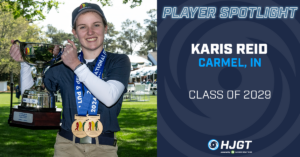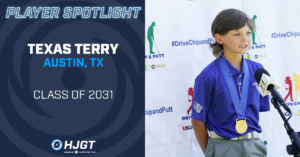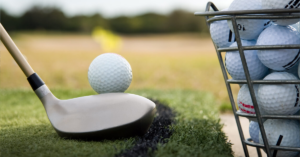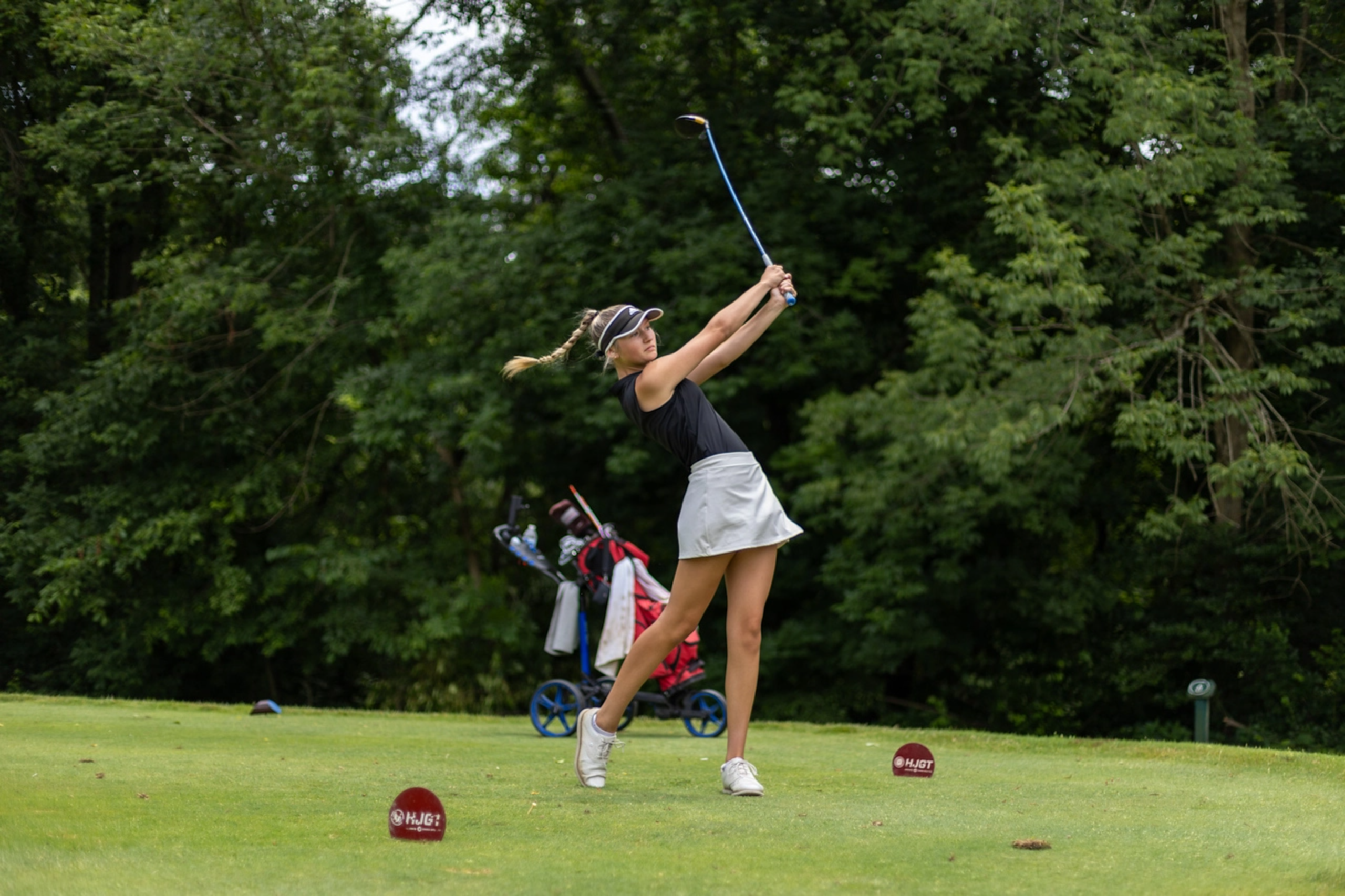Patrick Reed credits his Masters win in April to his newly prescribed contact lenses by his optometrist””only 10 days before the tournament, but are contacts right for junior golfers?
Contact lenses are an FDA regulated medical device used for the treatment of nearsightedness, farsightedness, astigmatism (oblong shape of the eye that can induce a mix of prescription within the eye), presbyopia (loss of ability to read up close) and many other conditions.
Are Contacts Right for Junior Golfers?
Most people are candidates for contact lenses. The technology has come a long way since its inception in 1888 and the first true, modern, gas-permeable contact lens in 1948. Today, we have a multitude of soft and hard contact lenses that can correct almost any prescription. In some cases, a person might see better and more comfortably with contact lenses rather than a glasses.
Soft vs. Hard Lenses
Most people today wear soft contact lenses. These lenses tend to be more comfortable, especially at the initial fitting. Soft contact lenses can correct for all the aforementioned refractive errors, even high levels of astigmatism with today’s more advanced soft lenses.
Soft lenses can come in a variety of wear-cycles from quarterly, monthly, bimonthly, weekly and daily. Generally speaking, the more you can change the contact lens, the healthier and more comfortable they can be. This is why I often prescribe daily contacts to my patients, and especially my pediatric contact-lens-wearers “” more on this later.
Hard lenses used to be more popular, especially when soft lenses could not correct for astigmatism as well as they can now. Hard lenses can provide better optics, especially for complicated prescriptions or people with certain medical conditions. Hard lenses may be the preferred means of correcting certain medical eye problems such as keratoconus, pellucid marginal degeneration, aphakia, anisometropia and many more condition. You should talk to your eye doctor about contacts if you or your junior golfer suffer from one of these conditions.
At What Age Can Contact Lenses Be Prescribed?
There’s generally no age minimum for contact lenses. As a matter of fact, some pediatric optometrists or ophthalmologists will prescribe medically necessary lenses to infants and toddlers who are aphakic (missing the lens inside the eye).
I tend to base my decision of whether to prescribe a contact lens to a child on maturity rather than age. I have had several seven or eight year old patients that were mature enough for contact lenses, and I have had several teenagers that I felt were not ready for the responsibility. Ultimately, it comes down to maturity, determination and cleanliness of a child to decide if they are ready for contact lenses.
When a child or teen is ready for contacts, I almost always prescribe a daily contact lens. Daily contact lenses are the healthiest modality for the variety of reasons. Firstly, there is no care needed for the lenses no need to disinfect appropriately each night. Secondly, there are fewer tendencies to abuse the contacts. I have seen many individuals in my practice come in wearing the same monthly contact for several months and even years! Daily contact lens wearers are compliant and the have the healthiest eyes as a result.
Are Contact Lenses Safe?
Yes. The likelihood of infection with proper contact lens care is minimal and even lower when the patient is using a daily contact lens. It is, however, important to know the symptoms of a corneal infection because the earlier it’s treated, the better the outcome.
Symptoms of an eye infection include: pain or foreign-body-sensation (feeling like there is a hair in your eye), redness, sensitivity to light, colored discharge or watering and poor vision. In the event that a patient experiences these symptoms they need to discontinue contact lens use immediately and contact their eye doctor immediately.
When a child or adult is new to contacts, we always have a one-on-one instructional class with them. In this class we teach the patients how to insert contacts, remove contacts, the “do’s and don’t’s of contact wear”, explain the wearing and disinfecting cycle and review the symptoms of infection. This class is vitally important to safe contact lens use.
Are Contacts Better than Glasses for Golf?
Generally, the answer is yes. Contacts allow for a fuller field of vision as they are not limited by the size of a frame and there is no frame seen in the patient’s visual field. Sweat can also cause a frame to slide down a golfer’s face or smudge the lenses – problems that don’t exist with contact lenses. Glare is also decreased as there is no reflective surface for light to bounce off of (even anti-glare glasses have some level of glare). In higher prescriptions or with people whose eyes are of a significant different prescription from one another, contacts can actually provide clearer, more comfortable vision than glasses.
What’s the Best Contact Lens for my Junior Golfer?
Only your eye doctor can answer this question as every eye is different and certain lenses are better suited for certain people. Soft lenses are generally either hydrogels or silicon hydrogels. Silicone hydrogel lenses tend to provide the most comfort and breathability to the eye, but in some cases hydrogels might be a better option.
Daily contact lenses tend to offer the best comfort and convenience, but some more complicated prescriptions may require reusable or hard lenses.
The Future of Contact Lenses
There are many exciting new contact lens that will be released in the near future. Two new lens technologies in particular might be of interest to golfers.
In April 2018, the FDA approved the first photochromic contact lens a contact lens that darkens with sunlight exposure. You might think its Halloween the next time you’re on the green.
Drug-eluting contacts have been studied for years. Future contacts may pack in allergy medications for the allergic golfer so that watery-itchy eyes aren’t interfering with your junior golfer’s putting game.



